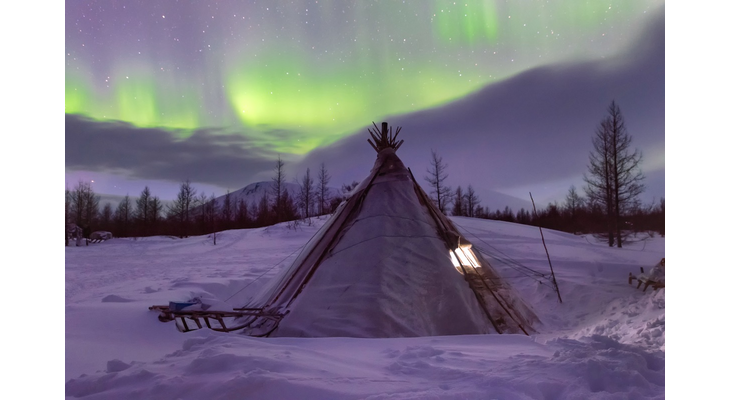The regional standard of minimum material support for the nomadic population has been implemented in the Yamal-Nenets Autonomous Okrug (YNAO – Yamal) since 2017 and includes 23 types of national consumer goods, support measures, and payments. The list includes sets of goods necessary for life in the tundra—such as "nyuki" (traditional footwear), poles, stoves, and tarps for covering traditional tents, woolen cloth, lamps, fishing materials, boards, medical kits, fuel and lubricants (GSM) subsidies, mini power stations, and chainsaws, as reported by the press service of the Yamal government.
Additionally, starting from 2025, tundra residents will be able to receive support in the form of stoves for their homes, metal roofing, and roof screws. This initiative was proposed by residents of Purovsk during the "Honest Route" program led by Yamal Governor Dmitry Artyukhov and during the summer series of field meetings in the tundra with representatives of relevant departments in the agro-industrial sector and the KMS (indigenous communities). Since 2020, this support measure has already been available to residents of Krasnoselkupsky and Shuryshkarsky districts.
As of the first nine months of this year, about 5,200 nomadic families have taken advantage of the existing support. They received nearly two thousand winter "nyuki" and poles for traditional tents, 500 stoves and kerosene lamps, more than 500 fishing nets, and 2,300 medical kits. To receive these goods, citizens need to submit an application with their passport to the municipal administration at their place of residence to be placed in the queue.
There are over 40 social support measures for nomads in the district. According to the "Gosexpertiza" portal, a set of mobile housing includes 25 to 50 tall poles, around 40-60 reindeer hides, as well as special windproof coverings and a stove. "A good traditional tent can cost between 700,000 to 800,000 rubles." On average, the diameter of its base is about six meters, allowing one or two families to fit comfortably, with room to host guests. As for "nyuki"—the coverings for winter tents, they are made from reindeer hides and are layered over the frame in two layers. Up to 80 pieces are used for a single tent. In the summer, the tent is covered with tarps or geotextiles, whereas in the past, birch bark, larch bark, and other materials were used.









